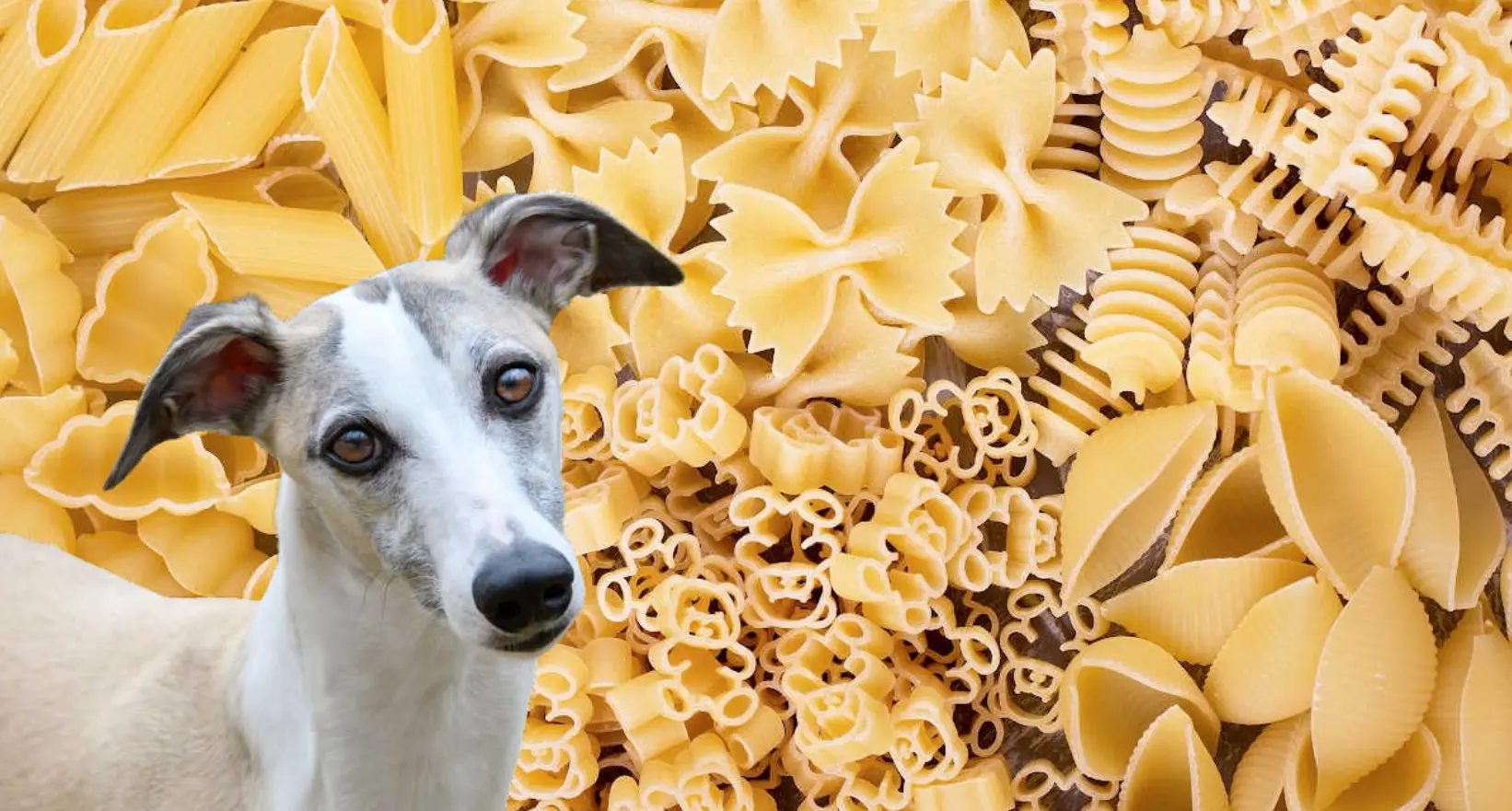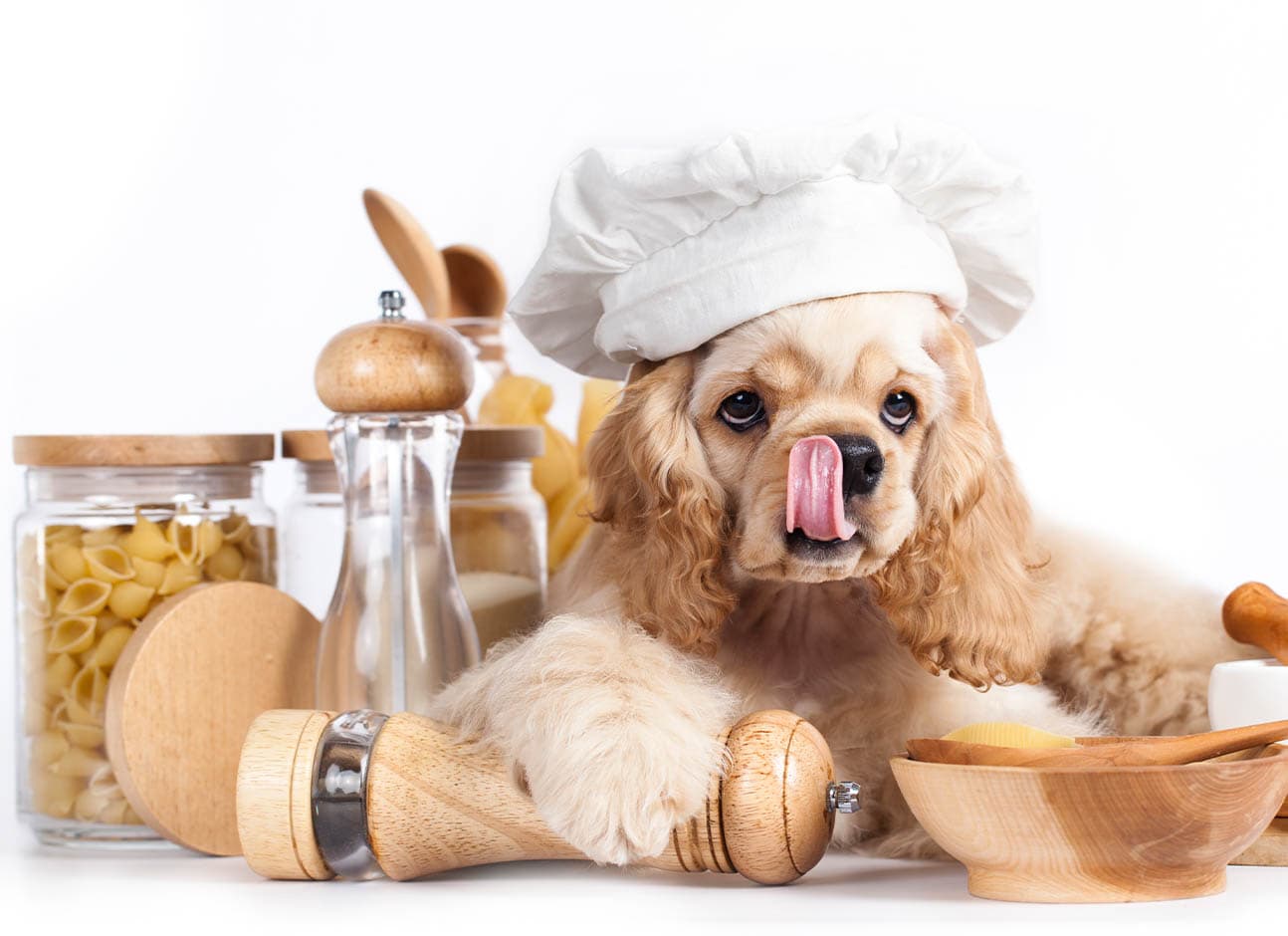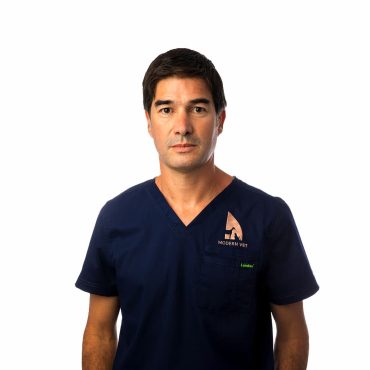Reviewed by Dr. Luciano de Gatica
Updated on 07/22/2024
Reading time 5 min.
Overview
Severity: Low
Life stage: All
As caretakers of our beloved furry companions, we must be mindful of what they ingest. Certain human foods can threaten their health and even prove to be toxic. One inquiry that has been frequently raised is whether dogs can consume raw pasta. This all-encompassing guide aims to provide a thorough and detailed account of everything you need to know about feeding raw pasta to dogs and whether it is deemed safe.

Dog and pasta
Can dogs ingest raw pasta?
The straightforward answer is no; dogs should not be fed raw pasta. While it does not harm their health, raw pasta lacks the nutritional balance that dogs require to sustain their well-being.
Raw pasta is difficult to digest, leading to stomach issues, constipation, and even intestine blockages – says Dr. Luciano de Gatica
Is cooked pasta a safe option for dogs?
Cooked pasta, on the other hand, is safe for dogs to consume in moderation. As long as it is prepared without any added sauce or seasoning, plain cooked pasta can serve as a source of carbohydrates, providing dogs with an energy boost. However, it should not be a staple food in their diet and should only be given to them occasionally as a treat.
How should pasta be prepared for dogs?
If you intend to feed pasta to your dog, it should be prepared without any additives. Cook the pasta until it is soft, and then drain it. Refrain from adding any sauce or seasoning. Mix it with cooked lean meat, such as chicken or turkey, to make it more palatable for your furry friend.
Remember to serve it in moderation and as an occasional treat!
Conclusion
In conclusion, whether dogs can consume raw pasta requires careful consideration. While pasta is not toxic to dogs, it can be challenging to digest and may cause gastrointestinal problems, such as vomiting or diarrhea. Additionally, some types of pasta may contain ingredients harmful to dogs, such as garlic or onion. Apart from consulting with your veterinarian about your dog’s dietary needs, ensuring that they receive routine check-ups and preventive care is crucial.
ModernVet offers comprehensive veterinary services, including wellness exams, vaccinations, and dental care, to help keep your furry friend healthy and content.

Share this, choose your platform!
Writen by
Dr. Luciano de Gatica
DVM
Luciano de Gatica graduated in 2005, as a Doctor of Veterinary Medicine, from Universidad Nacional de La Plata (UNLP) in Argentina. He gained extensive experience in the field of…

